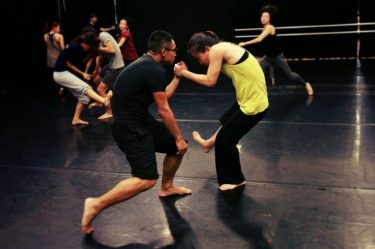Puppetry – it’s an art form that dates back by the centuries yet not commonly seen in our modern day and age, much less in local theatre. The closest most of us would get to it is across a television screen when Sesame Street or The Muppets is on air.
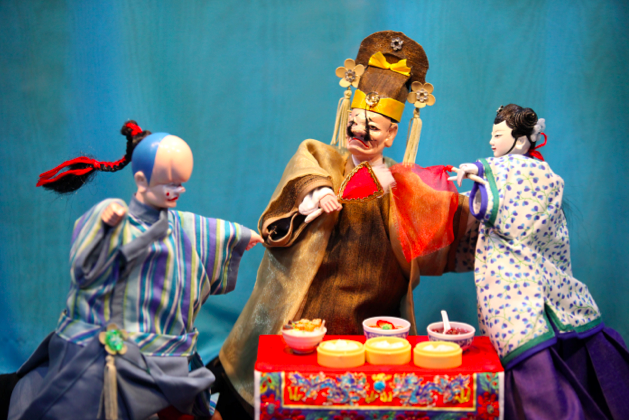
But, all’s not lost!
Tucked away in the cozy enclave of the Goodman Arts Centre is Paper Monkey Theatre. Headed by the dexterous puppeteer, Benjamin Ho, he lends his artistic direction to revive tales of old through his long-held passion for crafting and working with puppets.
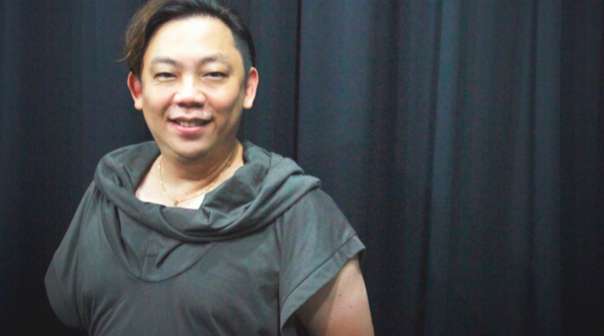
We had the pleasure of going behind the scenes into Benjamin’s creative mind, delving deeper into his love affair with puppetry and how he weaves it into theatre.
There are so many facets unique about Paper Monkey Theatre’s productions, involving puppetry, using languages other than English, and theatre tailored to family and kids. What led or inspired you to take such an artistic direction for the company?
My siblings and I have a big age gap and my parents were often busy thus I spent most of my childhood playing alone and creating stories from nothing. Therefore, I felt the need to create more outlets so parents can bring their children to enjoy quality shows together. I strongly believe that each child should be encouraged to grow and enjoy being children under the umbrella of creative learning; thus the puppetry. I think puppetry speaks well with kids in exploring and expanding their creativity.
Also, the stories featured in Paper Monkey Theatre’s productions seem to revolve around a folk tale or legend. Is there a particular reason for this focus? And how do you curate which stories you’d like to tell for the year?
Actually Paper Monkey Theatre doesn’t just typically revolve around folk tales or legends but rather folk tales and legends of Asia regions. I think that we have enough of western folk tales and legends (thanks to Walt Disney) input to our children such that many are forgetting about our Asian roots and heritage. We have so many Asian stories that are so rich in content and values such that we can and must continue to share with the children of today before they become extinct.
As for how I curate the stories to do for the year, it will depend on the feel I guess. I normally pick the stories that I like and I feel passionate about. After that I will look into the moral of the story and see if that is the desired point that we want to instill into our children.
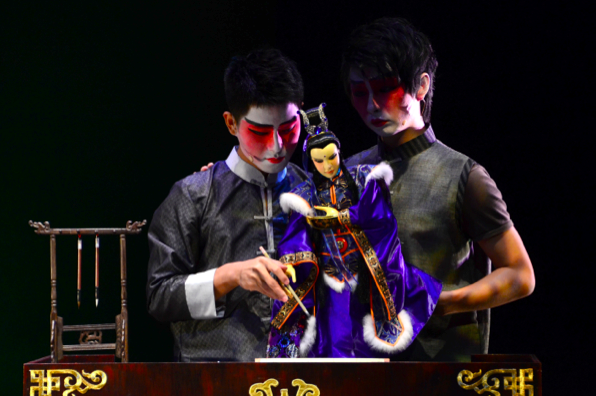
We’ve heard you’re a master at puppetry! It’s amazing you’ve performed to a wide audience across the globe and worked with established local theatre companies the likes of The Necessary Stage, TheatreWorks, WildRice and many more. When did you first learn the art and technique of puppetry? What made you fall in love with it?
I don’t think I am a master but rather an artist that is still learning more about this art form. I am constantly looking for opportunities to learn more either through workshops or classes; be it locally or overseas. I have a strong love for puppetry and it started when I was in Primary 1. Back then, I was hooked on watching The Muppet Show and often asked myself why and how the puppets moved by itself. I went to the school library and learned from art books on how to make puppets. I never stopped since then to find ways or materials to create my puppets. My break came when The Theatre Practice did Lao Jiu and needed puppeteers. I went and became one of the puppeteers. That was my first actual lesson on puppetry by a real puppet master. Since then, I’ve never stopped. I constantly looked out for classes to improve my art and technique.
Tell us more about your upcoming production Ne Zha, what’s the legend about and what are its origins?
NeZha is actually part of the famous classic novel – “The Legend of Deification” (I prefer the translation of the book as “Chronicles of God”). The story is about a special boy that was born into General Li’s family. His mother carried him in her womb for nearly 3 years before going into labour. NeZha was very kind and helpful but he always managed to get himself into trouble. His intention was good, however always with the wrong approach. One day, he stopped the son of the Dragon King from bullying other children by beating him up badly. Such an act angered the Dragon King and he eventually demanded the life of NeZha to pacify his anger. If not, he would use his power to create a Tsunami and drown the province. To save the people, NeZha scarified himself. Luckily, NeZha’s master resurrected NeZha using different parts of the lotus plant. He also gave NeZha special powers to defeat the Dragon King so that he could create havoc for the people again. After that, NeZha went on to help Jiang Zi Ya in the battle between good and evil. When the battle was over, The Heaven immortalized NeZha as a child god for his bravery in the battle.
We understand that the puppets being used in Ne Zha are rod puppets. Are there many different forms of puppetry and what might they be? Which is your preferred form, why so?
Yes. Puppetry are classified into the following 4 basic forms:
* Rod Puppet
* Hand Puppet
* String Puppet
* Shadow Puppet
Of course, there are other special kinds of puppets such as water puppets from Vietnam, Bunraku from Japan etc… I am trained in both Hand Puppet and Shadow Puppet. My favorite form is Shadow Puppetry. Of all the puppetry, shadow puppetry is one form that is 2D and it is considered as the ancestor of modern animation. I think this form of puppetry has more room for imagination and creativity.
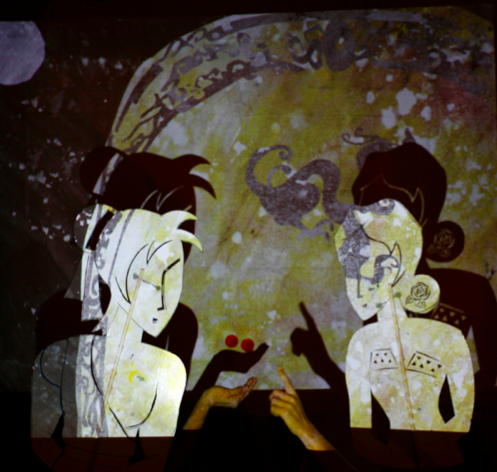
What’s the most challenging aspect of working with puppets and using them to bring a story to life in theatre? Any tips or tricks to managing that challenge?
The most challenging aspect of working with puppets will be
* The justification of using puppets instead of real actors.
* Getting puppeteers to transmit the character’s emotion through the puppet.
* Merging more than one form of puppetry into one show.
Tips or tricks to managing such challenge… I don’t think I have the answer for that. Only thing I can say is try, and try again.
One last random question: What do you think your puppet Ne Zha would say if he met Kermit the frog from the muppets?
Hmm… Think you will be delicious with porridge….
Get your tickets to The Legend of NeZha, presented by Paper Monkey Theatre here!
11-19 July / 230pm or 8pm / $25.20-$43.20
Image Credit: Paper Monkey Theatre


